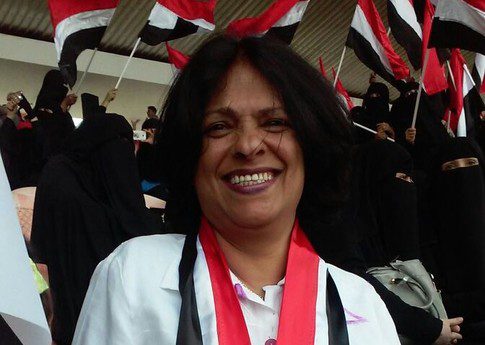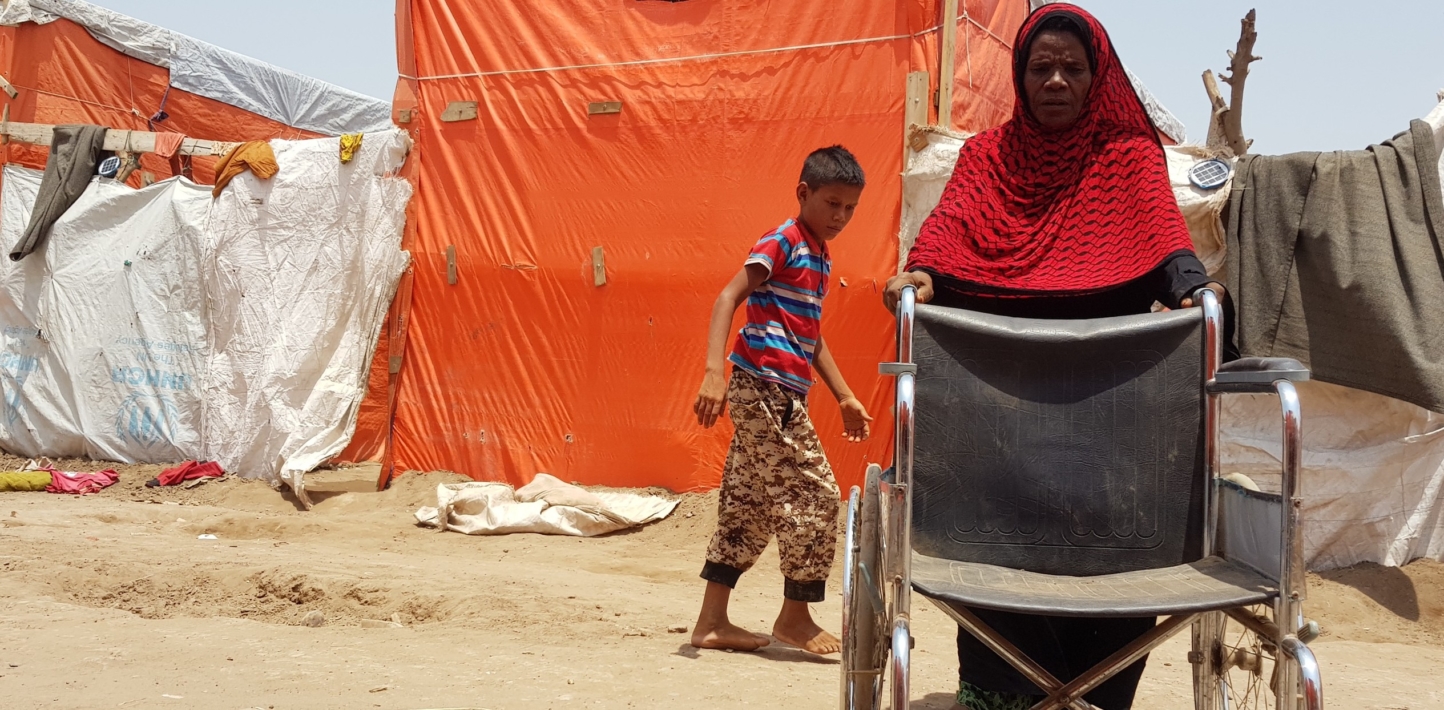The UN Security Council must translate its commitment to ensure the protection of people with disabilities in armed conflict into tangible actions on the ground, Amnesty International said today, echoing a Yemeni disability rights defender’s impassioned plea to the world body.
Raja Abdullah Almasabi, chairwoman of the Arab Human Rights Foundation, a Yemeni NGO which advocates for the rights of people with disabilities, addressed the Security Council on Tuesday in a briefing on Yemen.
“Raja Abdullah Almasabi eloquently described the harsh reality so many people with disabilities in Yemen face every day. Having been impacted disproportionately during years of armed conflict, their rights are all too often overlooked in the aid response to a situation the UN has described as the world’s worst humanitarian crisis,” said Rawya Rageh, Senior Crisis Advisor at Amnesty International.
Last year, the UN Security Council made a commitment to protect people with disabilities in conflict. The time has come to make that commitment more than just words on paper.
Rawya Rageh, Senior Crisis Advisor at Amnesty International
“Last year, the UN Security Council made a commitment to protect people with disabilities in conflict. The time has come to make that commitment more than just words on paper – including ensuring that humanitarian response is more inclusive and requesting periodic reports on the situation of people with disabilities in crises by the Secretary-General and others.”

Landmark resolution
On 20 June 2019, the UN Security Council unanimously passed a landmark resolution on protecting people with disabilities in armed conflict and ensuring their equal access to humanitarian assistance. It was the first time the Council had addressed in a resolution how armed conflicts and other crises disproportionately impact people with disabilities.
Two months prior, Nujeen Mustafa, the first person with a disability to brief the Council, described her experience living in Aleppo as a child with a disability and then fleeing the war in Syria. She detailed how conflict breaks down the structures people with disabilities rely on, and urged Council members to include people with disabilities in all aspects of their work.
In recent years the UN has stepped up efforts and states have renewed commitments towards ensuring that humanitarian response is more inclusive of people with disabilities – an estimated 15% of the world’s population, or more than one billion people. But there has been little tangible change on the ground.
People with disabilities caught up in Yemen’s war
The UN has described the situation in Yemen as the world’s worst humanitarian crisis.
Amnesty International has documented in detail how this crisis and years of conflict have had a disproportionate impact on people with disabilities – including those displaced by fighting.
Based on six months of research, including visits to three southern Yemeni governorates and almost 100 interviews, the organization’s December 2019 report Excluded: Living with disabilities in Yemen’s armed conflict examined the wide-ranging impact of the conflict on people with disabilities. It documented the difficulties they faced fleeing violence and the challenges they faced in displacement camps, such as difficulties accessing aid and inadequate living conditions that have undermined their inherent dignity. The report also documented the barriers people with disabilities faced in equally accessing health services, education and employment opportunities.
In the report, Amnesty International urged Yemeni authorities and the international community to ensure that people with disabilities and their organizations are included in the design and implementation of humanitarian response as well as being effectively consulted and meaningfully involved during any peace processes and negotiations.
‘Catastrophic health crisis’ amid COVID-19
In her remarks to the Council, Raja Abdullah Almasabi addressed many of these challenges and drew attention to the “catastrophic health crisis” now gripping Yemen amid the COVID-19 pandemic. “There are no specific, targeted actions to reach [people with disabilities], even though we know they are at a higher risk if infected by the virus,” she said.
Consistent with the overall lack of reliable data on people with disabilities in Yemen, it has not been clear how many people with disabilities have contracted or died of COVID-19. There are concerns about people with disabilities’ lack of access to information on prevention of and protection from COVID-19. Many people with disabilities cannot practice physical distancing from people they depend on for support.
“The spread of COVID-19 has added a further layer of misery to Yemen’s already complex and dire humanitarian crisis. The pandemic has laid bare yet again the deficiencies in crisis response for people with disabilities,” said Rawya Rageh.
The conflict in Yemen has further impoverished people with disabilities and resulted in the obliteration of the already limited social security support they once received.
I leave you with a simple plea – you can do more. You can do better. We are not an afterthought. Persons with disabilities must be part of every statement you release and every resolution you consider. We must have a seat at the table.
Raja Abdullah Almasabi
Raja Abdullah Almasabi called on Security Council members to stop supporting parties to the conflict. She urged them to do everything in their power to end the war, and to ensure that people with disabilities have a voice in peace negotiations. She also urged Council members to ensure that the rights of people with disabilities are an integral part of planning and budgeting for humanitarian response.
“I leave you with a simple plea – you can do more. You can do better. We are not an afterthought. Persons with disabilities must be part of every statement you release and every resolution you consider. We must have a seat at the table,” said Raja Abdullah Almasabi.


